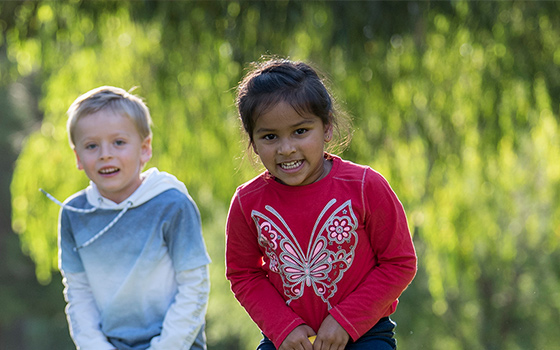Search
Research
Geo-visual integration of health outcomes and risk factors using excess risk and conditioned choropleth mapsGhana remains a malaria hyperendemic region with district-level spatial heterogeneity
Research
Online Video Instruction on Hand Expression of Colostrum in Pregnancy is an Effective Educational ToolFindings suggest that the use of an online expert video is an acceptable and effective way to educate pregnant women in antenatal colostrum expression
The Kids Research Institute Australia's annual report highlights the accomplishments of our researchers, furthering our mission to secure a happier, healthier future for kids everywhere.

Join us! Get involved with The Kids through providing a donation, volunteering your time, participating in important research, or with a professional commitment to the institute.
This research project is a collaboration between The Kids Research Institute Australia, Muscular Dystrophy Western Australia, Perth Children’s Hospital and Curtin University.

Are you 14-18 years old and attracted to people the same gender as you? We want you to help us understand how you feel other people see and treat you, and how this affects your mental health.

Parents of Year 4-6 students are invited to complete a brief survey or take part in a focus group on digital technology use by their children.
Researchers from The Kids Research Institute Australia are seeking young people (aged 14-25) who have a trans or gender diverse sibling aged 25 or under to take part in a new study.
The Kids Research Institute Australia is currently in the process of implementing a new recruitment system. Please click the link below to view and
The Kids Research Institute Australia is currently in the process of implementing a new recruitment system. Please click the link below to view and
